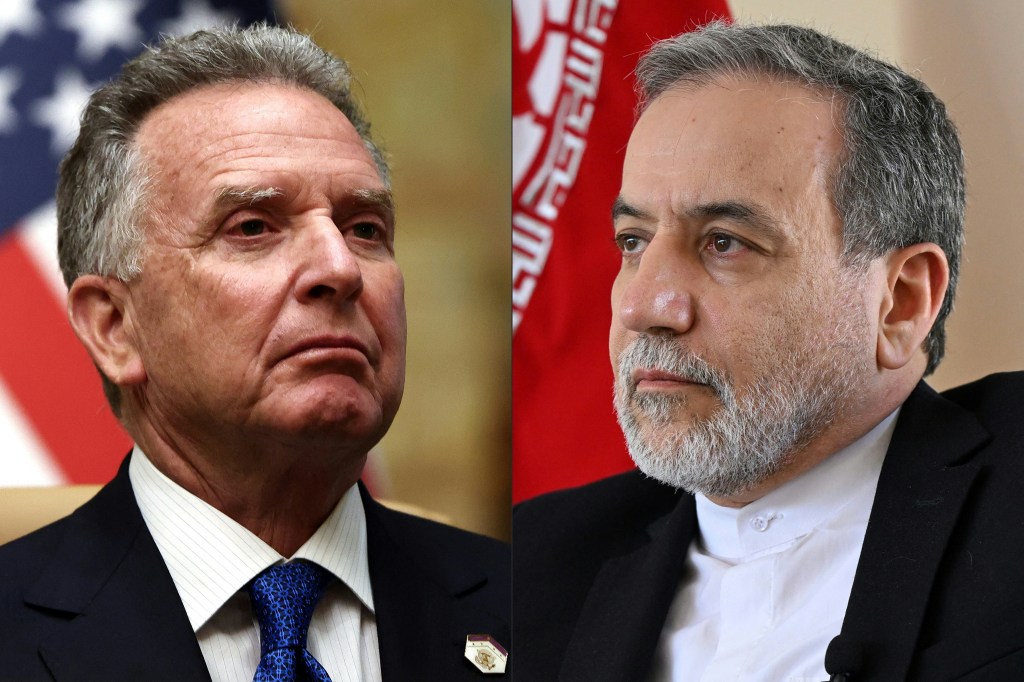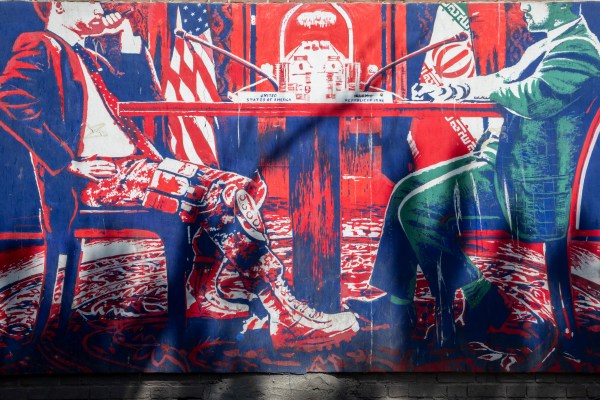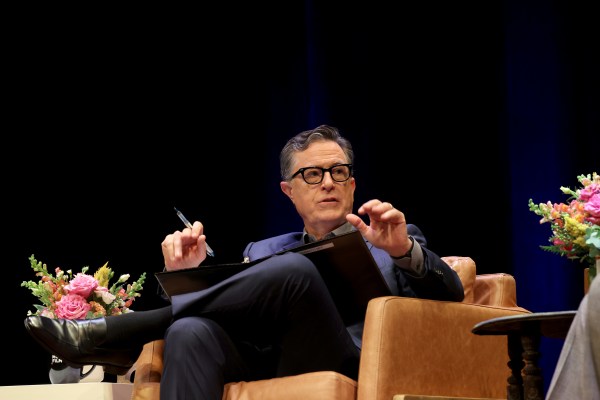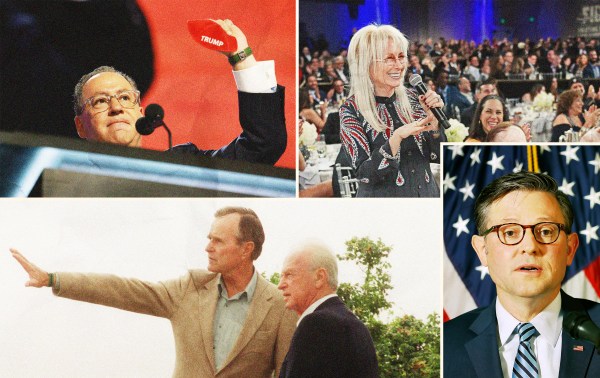Amid all the high-profile trade and investment agreements proclaimed by President Donald Trump on his swing through Saudi Arabia, Qatar, and the United Arab Emirates last week, he let slip that “Iran has sort of agreed to the terms” of a nuclear agreement presented by special envoy Steve Witkoff May 11, right before the dealmaker-in-chief headed off to the Middle East.
Questions abound, as they do with so many of the president’s sudden pronouncements, but the context and timing augur poorly for a viable nuclear agreement.
This is not for lack of U.S. demands that Tehran pack up its nuclear shop altogether, perhaps in exchange for low-enriched uranium imported from abroad and safeguarded inside the country. Mere days before reportedly giving Iran a formal proposal, Witkoff issued the most specific, full-throated U.S. ultimatum to date:
An enrichment program can never exist in Iran ever again. That’s our red line. No enrichment. That means dismantlement, it means no weaponization, and it means that Natanz, Fordow, and Isfahan—those are their three enrichment facilities—have to be dismantled.
Yet nothing in the week since suggests Iran is ready to make such major concessions. President Masoud Pezeshkian said during Trump’s trip that his country would adhere to Supreme Leader Ayatollah Ali Khamenei’s principles for any deal. Back in 2015, the supreme leader’s redlines won out over the Obama administration’s own supposedly non-negotiable demands for a deal—demands that sounded a lot like those now coming from the Trump team. That resulted in an agreement, the Joint Comprehensive Plan of Action, that allowed all of Iran’s nuclear facilities to remain open, legitimized its self-proclaimed “right” to industrial-scale enrichment, and did nothing to halt the regime’s weaponization program.
Trump—who correctly described the JCPOA as a “horrible one-sided deal that should have never, ever been made” when he withdrew the United States from it in 2018—seemingly backed a similar outcome toward the end of his trip. Last Thursday, on Truth Social, he shared an offer from Khamenei’s top nuclear adviser for strictly tactical Iranian concessions that fall far short of dismantlement, “a move interpreted by Iranian commentators and news media as a sign that he was willing to abandon the maximalist position of shutting down Iran’s nuclear program,” the New York Times wrote. Chief negotiator Foreign Minister Abbas Araghchi put a finer point on the matter that same day: “Enrichment is an issue Iran will not give up, and there is no room for compromise on it.”
Witkoff’s reported proposal would reflect Iran’s demands here, if indeed it pushes only for a multiyear enrichment pause. This is underscored by comments from American officials that further talks will “continue working through technical elements” of Iranian enrichment capacity, presumably in lieu of hard bargaining over basic principles like enrichment itself. On Sunday, Araghchi complained of confusing dissonance between official U.S. assertions about dismantlement and what he hears from them in private.
Moreover, Iran’s reported offer to Witkoff last week, in which it would produce uranium for civilian use at home and by Arab countries, holds fast to the regime’s insistence on retaining enrichment infrastructure and developing nuclear technology on its own soil—ostensibly for peaceful purposes, but without sacrificing its capacity to make weapons-grade nuclear material.
Thus far, Iran is simply copying the pages of its successful playbook from the Obama and Biden years. For all the precursory declarations from the Obama, Biden, and now Trump teams that no deal is better than a bad deal, Tehran regularly extracts major concessions and erodes U.S. credibility by dragging out talks, using that time to build up nuclear and military counterpressure, and ultimately dissuading the United States from walking away and leaving even an unacceptable deal on the table.
Throughout, the regime will be more than happy to let Witkoff and others claim they are keeping Iran from the bomb diplomatically. Obama officials eagerly did the regime’s publicity for it in 2015, trumpeting their “historic deal” to “block all of Iran’s pathways to a nuclear weapon” even as the president himself also admitted the deal did no such thing.
Fearing that Iran might once again be getting the better of its American interlocutors, more than 200 Republican lawmakers—including all but one senator—sent a letter during Trump’s trip urging his administration to stick to its redlines. In an astute move to bolster U.S. leverage and test the sincerity of Tehran’s demands to guarantee that a new agreement could not be abandoned, several signees called for any deal to secure Senate ratification as a treaty.
Such developments readily recall the worrying trends of failed outreach under Obama and Biden, but glints of optimism remain for a better outcome. Most importantly, in his keynote Riyadh speech last week, Trump warned that his outreach to Tehran
is an offer that will not last forever. The time is right now for them to choose, right now. We don’t have a lot of time to wait. Things are happening at a very fast pace … so they have to make their move right now, one way or the other. Make your move.
This points to the real watershed moment that looms in U.S.-Iran diplomacy. The president’s letter to Khamenei in March, in which he first offered talks, gave a 60-day timeframe to secure a deal. Assuming that clock started with the first round of talks on April 11, Iran now has less than a month to give up its nuclear weapons program or otherwise, in Trump’s words, “be handled militarily.”
If nothing else, the abiding lesson American policymakers should draw from previous talks is to adhere strictly to their deadlines. In 2014-15, the path from the Obama administration’s initially strong position to the untenably weak JCPOA went straight through three explicit, and ultimately hollow, U.S. promises to walk away in the face of Iranian intransigence. In 2021-22, Tehran garnered significant de facto sanctions relief, and tripled its enrichment capacity, as it balked at similarly empty warnings from Biden officials about time running out to rejoin the JCPOA. By calling these bluffs, Iran came out of talks both times with gravely diminished respect for U.S. deterrent threats.
At this point, Iranian diplomats likely would love to run out the 60-day clock by letting the Americans debate themselves, haggling endlessly over minutiae, and possibly hammering out a framework for open-ended talks. Flouting Trump’s redlines and deadline would collapse U.S. credibility and pave the way for cascading U.S. concessions—just like those that produced the JCPOA by replacing Obama’s ultimatums with Khamenei’s over the 20 months following the 2013 JPOA interim deal.
This dubious legacy compounds the consequences of Trump’s own decisions going forward. He faces a choice, no later than next month, of either following the predictably bad path of his predecessors or terminating desultory talks and making good on his threat to use military force to prevent a nuclear Iran. But using force effectively to address this problem, and boosting the odds of getting a good deal by threatening to do so, entails real and urgent changes to other key policies as well.
Most concerningly, and despite Trump’s well-founded criticisms of his predecessor’s approach, Tehran has little reason to believe the United States and Israel are working closely to build on Israel’s remarkable operations against Iran’s nuclear, military, and proxy infrastructures last year. The unmistakable pattern in recent months is one of patent incoordination, and at times open discord, when it comes to countering Tehran’s nuclear progress, stopping Houthi missile and drone attacks, bringing the new Syrian regime into the fold, and defeating Hamas and releasing hostages in Gaza. As then-Secretary of State Antony Blinken observed earlier this year, such “public daylight between the United States and Israel” merely encouraged Hamas to hold out in ceasefire negotiations. Hamas’ benefactors in Tehran are even more adept at exploiting every particle of light peeking through here.
There is a simultaneous lack of concerted cooperation with Britain, France, and Germany—the three European parties to the JCPOA—to address Iran’s systematic violations of its atomic safeguards agreements. Working more closely with these “E3” partners, who met Friday with Iranian diplomats, is critical for the robust monitoring and verification demanded by the Trump team as part of any deal. If these demands cannot be secured in the very near term, U.S.-E3 teamwork will be equally crucial for prompt “snapback” of stringent U.N. sanctions on Iran’s enrichment and weaponization work.
Iran can look to Ukraine-Russia diplomacy for added evidence that obstinacy pays. President Vladimir Putin’s defiance of U.S. ceasefire demands, and Trump’s willingness to overlook this defiance and continue offering direct negotiations with Putin, doesn’t say much for American ultimatums more generally. Nor does it bode well for Iranian perceptions of U.S. solidarity with its partners: if Russia can persuade Trump to go over Ukraine’s head by playing hard to get, Tehran can hope to sideline Israel the more it enmeshes the United States in talks. This worked unsettlingly well during JCPOA negotiations, when President Obama openly treated Israel’s military readiness and freedom of action as the chief impediment to achieving a nuclear deal.
Addressing these issues can bolster the credibility and leverage that were so conspicuously absent in past U.S. negotiations with Iran. In turn, excising Tehran’s nuclear threat—ideally through a timely, comprehensive, verifiable, and permanent settlement—is a predicate for all the larger gleaming ambitions of economic prosperity and stability that Trump espoused for the Middle East on his recent trip.









Please note that we at The Dispatch hold ourselves, our work, and our commenters to a higher standard than other places on the internet. We welcome comments that foster genuine debate or discussion—including comments critical of us or our work—but responses that include ad hominem attacks on fellow Dispatch members or are intended to stoke fear and anger may be moderated.
With your membership, you only have the ability to comment on The Morning Dispatch articles. Consider upgrading to join the conversation everywhere.